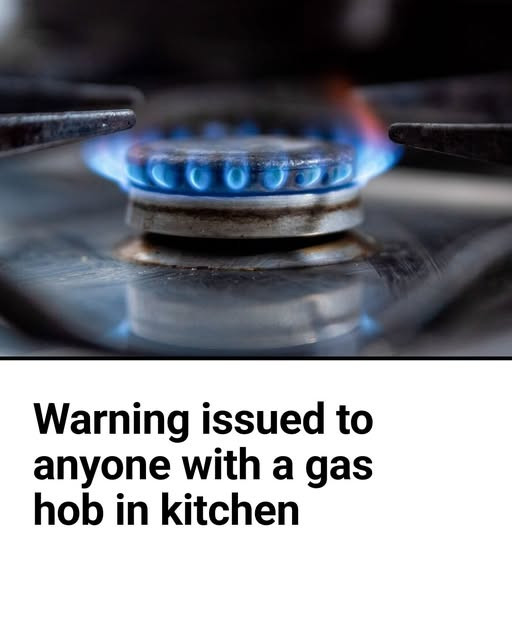ADVERTISEMENT

Warning issued to anyone with a gas hob in kitchen
—
ADVERTISEMENT
### 🌬️ **2. Poor Ventilation = High Risk**
Many kitchens **aren’t ventilated properly**, especially in apartments or homes without extractor fans or openable windows. When cooking with gas in a poorly ventilated space, harmful gases can quickly build up.
This can lead to:
* Headaches
* Fatigue
* Dizziness
* Increased risk of respiratory issues over time
✅ **What you should do:**
* Always use your kitchen’s extractor fan (if you have one) while cooking.
* If you don’t have one, **open a window or door** while using the hob.
* Consider installing a **range hood that vents to the outside**, not just a recirculating one.
—
### 🧯 **3. Fire and Explosion Risks from Improper Use**
Leaving a gas hob unattended, allowing food to boil over, or using the wrong cookware can lead to:
ADVERTISEMENT
* Kitchen fires
* Dangerous gas build-ups
* Potential explosions
It only takes **one small mistake** — like a leaking burner or a forgotten pot — to cause serious damage.
✅ **What you should do:**
* Never leave your hob unattended while in use.
* Clean burners regularly to avoid clogs and flare-ups.
* Avoid placing flammable items (like tea towels or paper) near the hob.
* Use pots that fully cover the flame — this improves efficiency and reduces risk.
—
ADVERTISEMENT
### 🚨 **4. Carbon Monoxide Poisoning: The Silent Threat**
Carbon monoxide (CO) is **odorless, colorless, and deadly** — and gas appliances are a known source if not properly maintained. Even low levels over time can cause health problems.
✅ **What you should do:**
* **Install a carbon monoxide detector** in or near your kitchen.
* Have your gas appliances checked annually by a qualified technician.
* Be alert for symptoms like nausea, confusion, or persistent headaches.
—
### 🔧 **5. Ageing Appliances Can Leak Without You Knowing**
Older gas hobs or poorly maintained units are more likely to:
* Leak gas
* Burn inefficiently
* Fail to ignite properly
These issues are often **invisible and silent** until a problem occurs.
✅ **What you should do:**
* If your gas hob is over 10 years old, consider an upgrade.
* Schedule regular maintenance checks with a licensed gas technician.
* Listen for clicking, sputtering flames, or a strange smell — these are all signs something’s wrong.
—
### 🧠 **Final Thoughts: Stay Informed, Stay Safe**
Cooking with gas isn’t inherently dangerous — but it **does come with risks** that many people underestimate. With awareness and a few simple precautions, you can enjoy the benefits of gas cooking while keeping your household safe.
**If you use a gas hob in your kitchen:**
* Ventilate while cooking
* Install CO and gas leak detectors
* Get regular maintenance
* Never ignore strange smells or malfunctions
This is your reminder to take **gas safety seriously** — because the risks are real, and prevention is always better than reaction.
—
**Have you had your gas hob inspected this year? It could be the most important thing you do for your home.**
Let me know if you’d like this article turned into a safety checklist, social media infographic, or email newsletter version!
ADVERTISEMENT